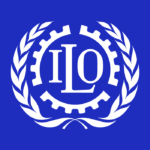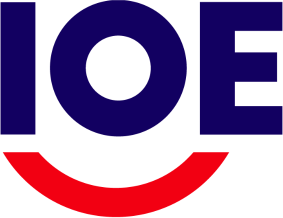
The Aruba Trade and Industry Association is the leading advocacy organization representing the interests of the Aruban businesses
Who we are
The Aruba Trade and Industry Association is the leading advocacy organization representing the interests of the Aruban businesses and providing a range of services to its members. ATIA was founded on June 18th, 1945 and is the largest employers’ organization on Aruba. ATIA’s membership represents directly and indirectly through other sister organizations, such as AHATA and WAB, more than 80% of the private sector employment on Aruba. Our main goal is to provide relevant services to our members; to champion, promote and protect the members’ interests and the business community in general.
As the voice of Aruban businesses, ATIA is involved in several government advisory and consultative committees and also on the board of several public entities and enterprises. ATIA also maintains informal and formal contacts with the government, politicians, local social entities and international associations.
Our partners and alliances
ATIA has alliances with sister organizations in the region and is recognized by the International Labour Organization (ILO) as the employers’ organization of Aruba. Furthermore, ATIA is also a member of the International Organization of Employers (IOE) based in Geneva and the Caribbean Employers’ Confederation (CEC) based in Trinidad and Tobago.







Our Mission
Assist
To assist,advise and provide relevant services and information to its members.
Champion
Champion the interests of its members in all labor and socio-economic issues.
Support
Support and promote a high quality business environment in a proactive way.
Promote
Promote Corporate Social Responsibility and the economic, employment and social policy environments necessary to sustain and further develop the market economy.
Inform
Inform public opinion and promote understanding of employers’ points of view.
Facilitate
Facilitate and promote the exchange and transfer of information, experience and good practice amongst its members.
The team



History
ATIA was founded on June 18th, 1945. It was then called “De Vereniging van Handelaren op Aruba”.
The first President was M. Viana who stayed on till 1947. He was followed by L. Posner who was President for only one year, as were his successors Nat Cohen and H.D.G. Kroonenberg. In 1950 Clinton Whitfield became President and stayed on for 7 years. His successor Arturo M. Arends was President for 5 years. F.L. Scholl became President after that and stayed until 1965.
In 1964 the name was changed to “De Arubaanse Vereniging voor Handel en Industrie” (Aruba Trade and Industry Association) with the goal to promote the interest of Trade and Industry on Aruba. It was also that year that the code of ethics was introduced.
Founders
- M. Vianna
- CH. Neme
- A. Sasso
- J.G. Eman
- H. Gottfried
- D. Willemse
- C. H. Whitfield
- A.G.Macherowski
- L. Posner
- L. Berlinski
- A. in ‘t Veld
- A. M. Arend
- A. Wever
Board Roles and Functions
New Constitution
As of August 2010, ATIA has a new constitution, which now exists of the Board of Directors and an Executive Director. The Board of ATIA primarily governs and the Executive Director primarily manages.
This means that the Board provides counsel to the Executive Director and does not get involved in the day-to-day affairs of the organization. The Board selects and works with the Executive Director, amends bylaws, approves the annual budget and long-term strategic plans, and ensures its own succession.
The Aruba Trade & Industry Association (ATIA) is a legal entity organized under the laws of Aruba with the purpose to promote the interests of trade and industry in Aruba. The activity of ATIA’s governing and management bodies are compliant with the bylaws of ATIA. This legal information is available on request.
ATIA has an Executive Director and a Board of Directors.
ATIA’s Board of Directors represents almost every sector of the Aruban economy, from industry and commercial services to construction, the retail trade and the health care sector, and from capital-intensive to labor-intensive businesses.
The Members of the Board advice, govern and oversee policy and direction, and assist with the general promotion of ATIA so as to support ATIA’s mission and needs.
Members of the Board share the responsibilities while acting in the interest of ATIA. Each member makes recommendations based on his or her experience and vantage point in the community.
The Executive Director is mainly responsible for executing the Strategic Plan; for forming public opinion; for promoting understanding of employers' point of view; for policy development & lobbying; for marketing, public relations, personnel and budget management.
Latest Position Papers
Board Members










